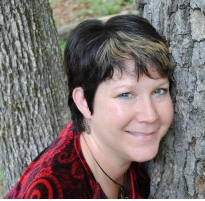 What is Culture
What is Culture
Culture includes the beliefs, customs, and arts of a particular society, group, or place.
Cultural background, as well as individual personalities, directly affects how people respond to death and dying. Sensitivity to cultural, ethnic, religious, gender, personality, and language diversities will help you as you. strive to work effectively with families who have experienced a sudden or unexpected death, as well as with those who knew it was coming, but are still blindsided by the emotional impact. Respect for families in grief, and honoring how they mourn, makes your job easier, helps you finish faster, and reduces tension for you and the bereaved.
How Do We Deal With Our Differences?
Before you are in an investigative situation involving people with different backgrounds, customs, and beliefs from yours, use your imagination to visual scenarios.
- For instance, what are the preferences you and your family have for how to handle your deceased loved ones with dignity when they pass? A viewing. Open casket. Closed casket. Burial. Cremation. A church service. Prayer. Scattering their ashes in a special place. A party to celebrate their life. Drinks to toast them.
- Maybe you prefer private time with your loved one’s remains, quiet time to process and grieve. In your family, do you want the opportunity to gather and mourn? To cry together, to laugh, debate, and share stories with each other? Do you want your loved one to be processed compassionately and quickly?
- What if someone in a position of authority, someone who could control things that forced you into a helpless capacity, were to tell you that your wants, desires, and preferences for your loved one could not be honored. How would you feel?
- Ask yourself, “How would I like my wishes and those of my loved ones to be treated?” Then think, “How would I feel if my wishes and those of my loved ones were disregarded? Even if I knew it was for a greater good?”
- How would you like to be treated? How would you want your loved ones to be treated?
How Your Views Can Positively Impact Your Job
- Now imagine yourself interacting on the job with a group of people who feel just as strongly about their wishes — some whose cultural traditions include the following.
- A devout Jewish person, whose loved one dies on a late Friday afternoon, but believes no work of any kind should be done between sundown Friday and sundown Saturday, because of the Sabbath command given by God.
- An African-American person, whose need for a surrounding of family support, wants to open their arms and call bystanders in for hugs and shared tears, before the scene has been processed.
- A Muslim woman who refuses to make eye contact with a male professional asking investigative questions, or who barely speaks above a whisper, because she feels uncomfortable in the company of a male who is not a close relative.
- An Hispanic male in a heightened emotional state, who constantly interrupts and cuts off those trying to determine the facts. Due to his conditioning as an Alpha male, he is used to demanding answers, and expects fast responses.
- A barrier of silence coming from Amish women and men who likely witnessed a cause of death, or could offer insights to what led to the deceased final moments.
Keep in mind, with all ethnicities, generalized customs, may or may not be practiced by the individuals you encounter. In all cultures, there are extroverts and introverts, however, culture will play a role in how natural personality is expressed.
Remember to reflect on specific times when someone showed you mercy, compassion, and kindness during a difficult time. Focus on passing these universal gifts to others.
General Guidelines for Handling Cultural Diversity
Ask yourself, “Is my process style NECESSARY or DESIRED?” Be open to accomplishing the means by coming at it from a different direction if need be. Attempt to identify a family member you can communicate with, to determine cultural customs, and discover how to appropriately approach the situation so that the job gets done, without disrespecting the family’s philosophical expectations.
When possible, allow families to grieve the loss of their loved one according to their wishes. Privacy and solitude may be important to some families during their time of loss, while others may prefer company and the human touch. More can be less, and less can be more. Attempt to identify a family’s emotional need so you do not overwhelm them with unwanted support and guidance, or appear cold and uncaring.
Recognize that grief and loss may be expressed differently across cultures.
Some families may not grieve as you might expect, or have experienced with others in the past. This does not mean families acting differently are not affected by what happened. Don’t allow your own emotional bias to prevent a respectful, caring, empathic, and patient attitude towards families experiencing a loss. You should ask questions and listen to family members, and take your response cues from them.
Respond to family requests with respect and sensitivity.
You may not always be able to do what a family asks, but you can always allow them to maintain their dignity. However, explaining in an honorable and tactful manner why certain requests may not be accommodated is crucial.
 Anita Brooks
Anita Brooks
anitabrooks.com
Anita Brooks motivates others to dynamic break-throughs. Blending mind, heart, body, and spirit, as anInspirational Business/Life Coach, Certified Personality Trainer, International Speaker, Certified Communications Specialist, andCommon Trauma Expert.
Anita is also an award-winning author. Her titles include Amazon best seller: Getting Through What You Can’t Get Over, Barbour Publishing,First Hired, Last Fired — How to Become Irreplaceable in Any Job Market, Leafwood Publishing, Death Defied-Life Defined: A Miracle Man’s Memoir, and contributor to The Change: Insights Into Self Empowerment Book #4. Her books are available at major and independent bookstores, Amazon, plus several online retailers.
She fulfills her mission to help 21st century women and men make fresh starts with fresh faith by sharing what she’s learned through experience, interviews, and research. Anita shares hope and encouragement on her Fresh Faith Inspirations podcast.
Anita’s favorite pastime is watching sunsets with her husband of 30 years, while they laugh and dip their toes in the water. Her favorite passion is inspiring others to transform battles into victories.
You can connect with Anita on Facebook, YouTube, Pinterest, LinkedIn, or Twitter. Keep up with Anita’s latest happenings at anitabrooks.com.Email anita@anitabrooks.com to request information on having Anita inspirationally speak or train at your next event.

